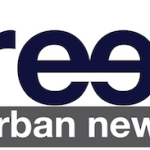The John S. and James L. Knight Foundation teamed up with analytics firm Gallup on an experiment to examine the level of trust in news articles being shared over the internet, both from the people doing the sharing and the people receiving those links and looking into matters further.
This study was conducted using Gallup’s experimental news aggregation website, which regularly collects news stories from seven major news outlets across the political spectrum: left-leaning (The New York Times, Vox, Media Matters), neutral (The Associated Press) and right-leaning (100PercentFedUp, Breitbart News, Fox News).

Gallup said 30,062 members of the Gallup Panel were invited to join the study, and 4,802 clicked on the invitation and were enrolled from May 3 through June 4. After those respondents were spilt into two random groups, 456 in the first group said they wanted to share an article and answered at least one follow-up question, while 770 in the second group clicked on the link in a shared article to learn more and answered at least one of the subsequent queries.
The 456 participants in the sharing group rated their trust level in and shared 1,225 articles over the course of the study, with 48 percent of them sharing more than one article, while 49 percent of the group who wanted to learn more reviewed and researched more than one news story during that time period.
The average trust rating for those 1,225 articles was a 4.0 out of 5.0—with 71 percent of those articles receiving trust ratings of 4.0 or higher—while the average trust rating for the 2,227 articles researched further in the group who wanted to learn more was just a 3.1. Overall, the average trust rate per user in the sharing group was a 3.9, dropping to a 3.2 in the group who wanted to learn more.
The Knight Foundation and Gallup said that while both test groups came in slightly below the U.S. Census estimate that some 40 percent of Americans identified as Republican or leaning Republican as of July, the heavier Democratic presence was not a factor in determining the most frequently read news sources in the study.
The AP was the source behind 49 percent of articles readers wanted to share and 40 percent that enticed readers to find out more.
Meanwhile, the three right-leaning publications were the source of 29 percent of shared articles and 38 percent of readers who wanted to find out more, and those numbers were 23 percent and 23 percent, respectively, for the three left-leaning media sources.
The reasons why participants in the sharing group decided to share articles were:
· 44 percent: To call attention to the story
· 20 percent: To express interest in the topic
· 18 percent: To engage with others
· 10 percent: To verify its accuracy
· 9 percent: To ask someone’s opinion
Those in the sharing group also leaned toward limited reach, with 46 percent opting for email or direct message, while just 25 percent chose Facebook and 7 percent took to Twitter.
Members of that group wanted to distribute the articles to friends and family (53 percent) more so than people in their online social networks (17 percent), “as many people as possible” (14 percent) or work colleagues (8 percent).
As for the group who wanted to find out more about news articles, 36 percent said they would turn to a different news site, while 27 percent mentioned Google, 22 percent fact-checking websites, 10 percent “other” and 6 percent Wikipedia.
Back to the political angle, Republicans were more likely to share articles from news sources more closely aligned to their political points of view than Democrats were, with 60 percent of articles shared by Republicans coming from publications that were not right-leaning, while 77 percent of those shared by Democrats came from non-left-leaning outlets.
Not surprising, the Knight Foundation and Gallup found that Republicans’ average trust rating of stories from left-leaning sources was lower, “in a statistically significant way,”: than their average trust rating of articles from nonpartisan or right-leaning sources, while Democrats’ average trust rating of articles from right-leaning sources was lower, in a statistically significant way, than their average trust rating of stories from nonpartisan or left-leaning sources.
Reasons for sharing were fairly consistent across the political spectrum, with 44 percent of Republicans, 46 percent of independents and 43 percent of Democrats saying they shared stories to call attention to them.
The Knight Foundation and Gallup concluded, “The digital age has empowered news consumers to engage with the stories they read in significant ways. People can share the stories that they read with, potentially, a wide audience. Meanwhile, curious or skeptical readers can instantly investigate a news story that strikes their interest. Whether these actions are motivated by trust—or if the credibility of a news story is a factor at all in these behaviors—has been unclear. This is an important question, especially with respect to sharing, through which people may unwittingly disseminate false information if they are not mindful to consider the likely accuracy of the story.”
They added, “The results of this experiment, though not able to make strictly causal claims, suggest that trust in an article’s accuracy is a factor in determining whether to share the story. People who said they wanted to share an article also tended to rate their trust high. People also indicated that, primarily, they wanted to share an article with people whom they are (theoretically) close with: their friends or family members.”
Source: ADWEEK/David Cohen






